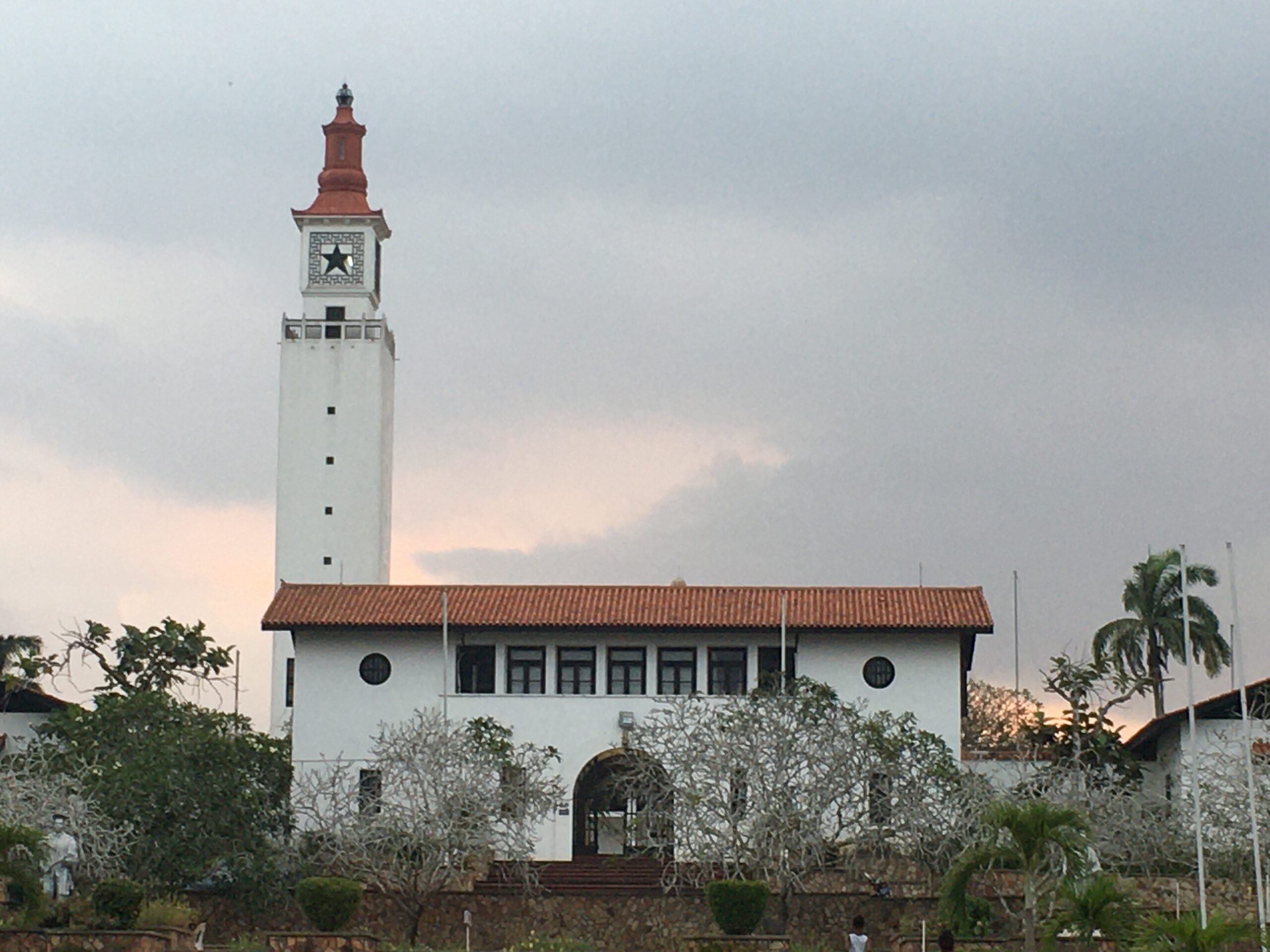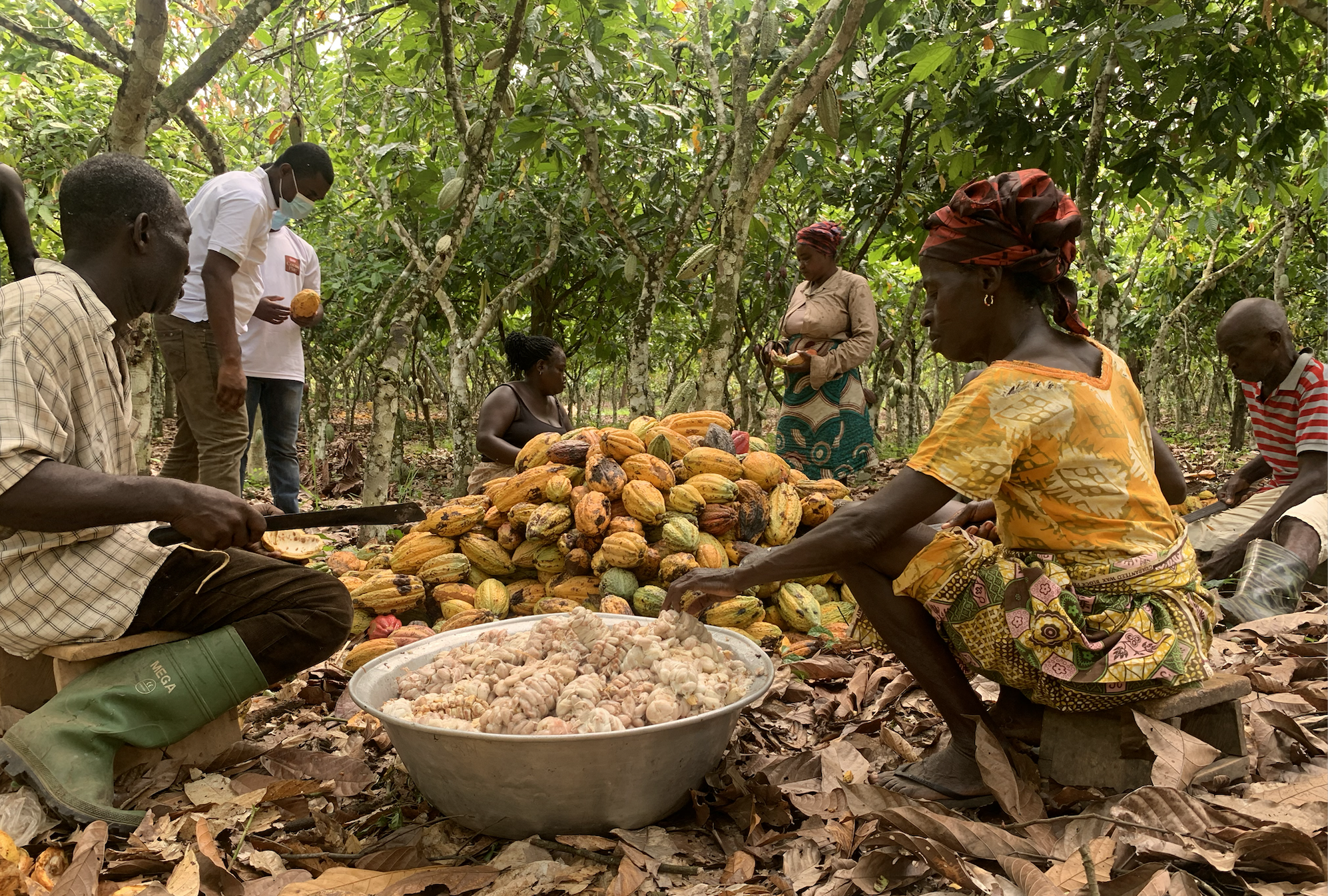
Researchers are still trying to learn why the population of African penguins has dropped precipitously over the last 15 years—some estimates say by 90%—but most agree that climate change is a major factor in the decline of this iconic African species.
There may be additional forces at work, including pollution, overfishing, predators and disease, but warming currents on both sides of the continent are driving the huge shoals of sardines and anchovies on which the penguins dine farther south toward cooler waters.
Warming waters are not a problem only for penguins and other sea creatures. They have major implications for coastal communities all around the continent, where a quarter of all people rely on the ocean as a primary source of food.
Globally, average temperatures will increase by more than 2°C by the end of the 21st century, and could increase by as much as 3°C by 2050 and even by 6°C by 2100. The impacts of this warming on the ocean surrounding the continent are already being felt.
Small-scale artisanal fishing and tourism are critical economic pillars for communities along Africa’s 30,500-kilometre coastline. Many of these are grappling with the effects of climate change, including rising sea levels, warming waters and increasing ocean acidification, which has led to greater coastal erosion that has damaged infrastructure in West Africa. A warming Indian Ocean has damaged coral reefs that are essential for tourism, fishing, and the protection of the shoreline.
“One of the biggest threats to coastal and marine systems in Africa is climate change,” says Yuvan A. Beejadhur, team leader on ocean economy at the World Bank, adding, “The impacts are already being detected in many areas of the continent.”
According to Mr. Beejadhur, natural resources specialist, sea temperatures in coastal boundary systems may continue to increase over the next few decades and centuries. If current trends continue, sea temperatures will increase from 0.62°C to 0.85°C over the next few years and from 2.44°C to 3.32°C over the long term, he warns.
“This will mean Africa will need a cascade in financing. It will require significant funds, finance and investments that need to be unlocked, leveraged and catalysed for building resilient and climate-smart ocean economies,” he predicts.
Jacqueline Alder, manager of Global Partnerships for Responsible Fisheries at the Food and Agriculture Organization (FAO), also notes the significant impact on coastal infrastructure of coastal erosion. Fishery landing sites have been forced to move, resulting in higher fishing costs. In some cases poorer-quality fish has led to lower market prices.
In addition, more frequent flooding has affected coastal systems, with runoff from the storms ending up in the oceans, reducing the salinity of the water and causing fish to move farther offshore. Consequently fishermen have to travel farther to catch fish, “or they don’t fish at all,” she says.
In Mozambique, coastal erosion due to rising sea levels has significantly altered the coastline, says Eugénio João Muiange, the director of the National Institute of the Sea and Boundaries. “When we look at old maps and compare them with now, we see lots of changes. Small islands and sandbars have disappeared.”
“Erosion has eaten land 2 to 3 kilometres inland,” he adds. “When we look for a reason, we can only reach one conclusion—that it is sea-level rise.”
Coastal erosion has led to the displacement of communities in West Africa and has already resulted in economic losses of about 2.3% of GDP in Togo alone, the World Bank reported in 2016.
Ronald Jumeau, permanent representative of the Seychelles to the UN, says many of these trends have been noticed for years yet were poorly understood. Coastal erosion in West Africa has been “huge,” he says, and as a consequence many people have been forced to abandon their communities on the coast and look inland for new opportunities. “Suddenly it becomes a political issue,” he says, adding, “There’s a demographic shift underway.”
African countries often lack the data, the computing power and the analytical ability to take action, Mr. Jumeau points out.
Another result of climate change is ocean acidification. As the ocean absorbs greater amounts of carbon dioxide, it becomes more acid, and its changing chemistry poses a threat to coral reefs and biodiversity. About 30% of carbon dioxide caused by human activity dissolves into the oceans, and the increased acidity prevents organisms that depend on calcium carbonate from producing shells and skeletons.
Fisheries in the western Indian Ocean—off the east coast of Africa—mainly depend on coral reefs, Mr. Jumeau points out. Increased coral bleaching and mortality (generally caused by warming ocean temperatures) will have negative effects on fisheries, fishery-related employment and nutrition.
Corals across the western Indian Ocean declined by an average of more than 35% after bleaching events in 1998, 2010 and 2016. Such events have an economic cost: the coral bleaching event in 1998 cost the scuba dive tourism industry an estimated $2.2 million in Zanzibar and up to $15.09 million in Mombasa, Kenya.
Acidification of the ocean
Coral reefs in the Seychelles also suffered from the 1998 bleaching event, which was caused by warming from an El Niño weather phenomenon, but other bleaching events have also affected the country, recalls Mr. Jumeau. Some reefs have since been restored to health; others have not. Coral reefs are an essential tourist attraction and provide protection from coastal erosion for the hotels on the islands.
Around 2.5 million tourists per year visit the tropical coast area of Egypt; 23% of these tourists come specifically to dive, and a further 33% participate in snorkelling activities.
Cognizant of the destructive impact of climate change on the oceans around Africa, affected countries came together at the African Ministerial Conference on Ocean Economies and Climate Change in Mauritius in September last year to assess the challenges faced by coastal and marine systems in Africa and discuss the need to develop climate-ready ocean economies.
And last November, at the 2016 Marrakech Climate Conference held in Egypt, the World Bank, the Asian Development Bank and the FAO announced a “African package for climate-resilient ocean economies,” an ambitious bundle of technical and financial assistance focused on measures to build resilience, reduce vulnerability, develop early warning systems and optimize carbon sequestration.
Between 2017 and 2020, the initiative will mobilize between $500 million and $900 million and implement programs linked to climate change adaptation and mitigation.
World Bank experts caution that without action, fish catches are projected to drop because of climate change—possibly by one half in Côte d’Ivoire, Ghana, Liberia, Nigeria, Sierra Leone and Togo, according to the FAO.
“These ambitious programmes aimed at strengthening the resilience of African coastal communities are critical to meeting the challenges and opportunities of climate change, especially for vulnerable Small Island Development States,” observes Maria Helena Semedo, FAO’s deputy director-general for natural resources.
“African coastal communities are some of the most affected by climate change,” she continues. “FAO is fully engaged and ready to be at the heart of these significant developments to work alongside countries and communities to reduce their vulnerabilities, build their resilience, and maximize opportunities emerging from climate change.”
The African package for climate-resilient ocean economies is composed of five flagship programmes, and each will have its own focus as well as sharing knowledge and best practices with the others.
In North Africa, the focus will start with fisheries, aquaculture and ocean observation systems; West African priorities will include fisheries, combating coastal erosion, and building tourism; in Central Africa, stretching from Cameroon to Angola, priorities will include a focus on safety at sea; East Africa will develop its aquaculture and tourism; and the Small Island Developing States, often the most dependent on the oceans and the most vulnerable to disaster and erosion, will focus on the development of an economy designed for sustainable development, generally referred to by experts as the “blue economy.”
African countries will be participating in the Ocean Conference to be held this year in New York from 5-9 June, which is aimed at promoting the implementation of Sustainable Development Goal 14 (Life below water). The goal calls for action to address a range of ocean issues, including protecting marine biodiversity, reducing overfishing and addressing ocean acidification and marine pollution.
By Dan Shepard
Read Full Story





























Facebook
Twitter
Pinterest
Instagram
Google+
YouTube
LinkedIn
RSS